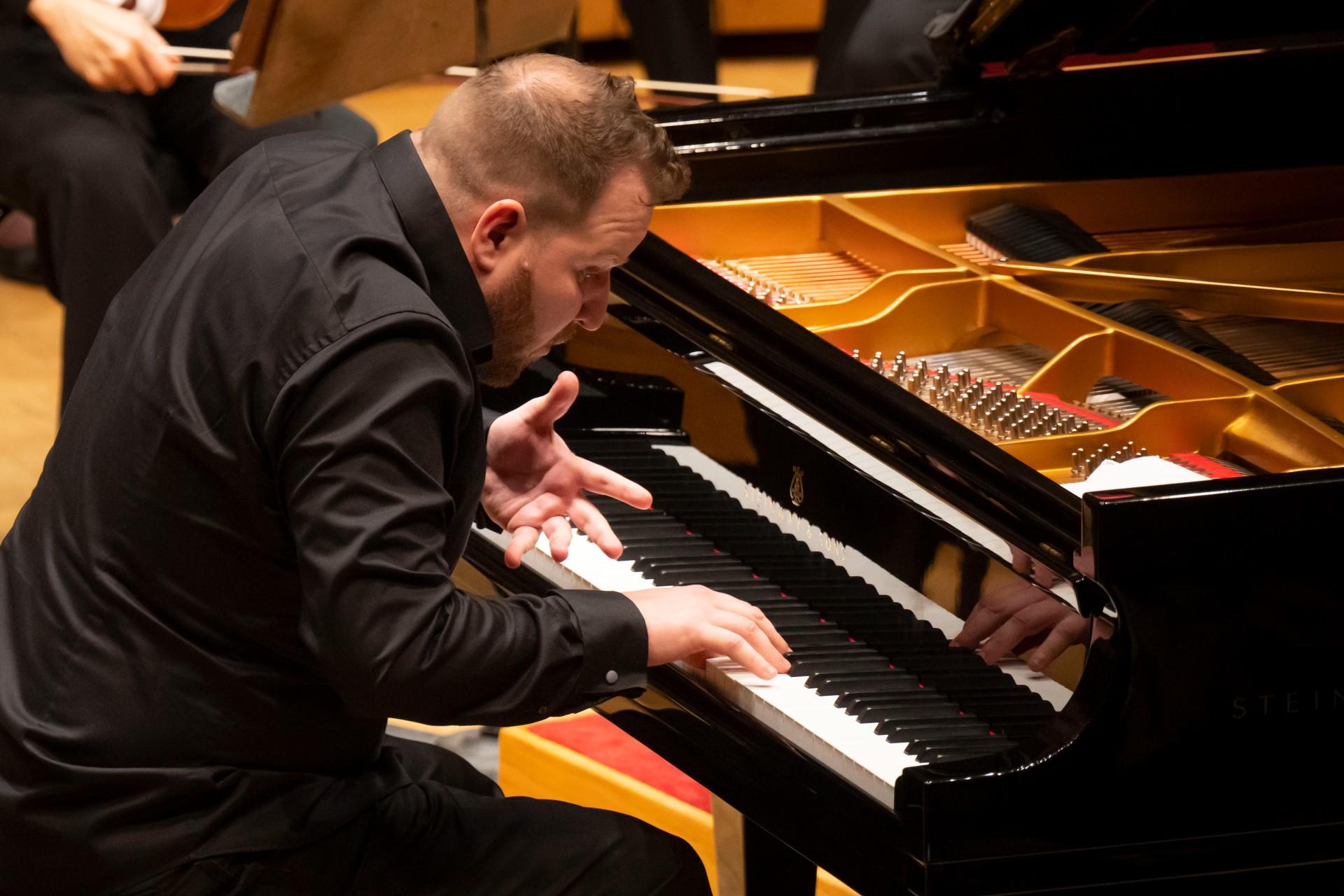Conductor Marin Alsop leads the Chicago Symphony Orchestra in Symphony No. 1 of the Barber (credit: Todd Rosenberg)
It was a great moment for conductor Marin Alsop. The CSO’s “Summer House” Lavinia Festival took place on Thursday night when she was on the podium and conducted the Chicago Symphony Orchestra with a combination of great works by Sergei Rachmaninoff, Samuel Barber and Edward Elgar. There was news that it was. She contracts as Chief Conductor for three years (until the summer of 2025), where she continues to curate and lead the three-week program with the CSO.
In addition, Alsop (widely known as “Leonard Bernstein’s Disciple” and clearly marked by his often fierce physical conducting style) is a recent documentary about her “breaking the glass ceiling”. It is also the subject of “The Conductor”. She will be the first female to be the music director of many famous orchestras. (This movie is currently showing at the Renaissance Place Cinema in Highland Park.)
But let’s return to the concert at hand (which had a very responsive audience) and the galvanic performance by Czech-born pianist Lukas Vondracek in Rachmaninoff’s “Piano Concerto No. 2 in C Minor” written in 1901.
Composed in the wake of a serious depression attack suffered by a Russian composer (who was also a pianist master), the concerto, a nerve-wrackingly difficult piece, is full of gorgeous melodies and pianist fireworks. Often “borrowed” for non-concert use.
Backed by a complete orchestra, which was a normal noble form, Fondolasek, a well-built man, created an extraordinary piece of work with a stunning combination of both immense power and incredible lyricism. He supplied it when its rapid fire passage demanded tremendous weight and tremendous speed, but he was also great when the work turned into a more sad and pensive mood. I refined the touch that is completely different from the face. The orchestra’s strings and wind are ideally behind him in every situation, from the most stormy passages of the work to its very inner dreamy riffs, with a strong sense of both confusion and romance throughout. It was flowing.
 Soloist Lucash Vondrachek plays Rachmaninoff’s Piano Concerto No. 2 (credit: Todd Rosenberg)
Soloist Lucash Vondrachek plays Rachmaninoff’s Piano Concerto No. 2 (credit: Todd Rosenberg)
The rapid construction of the work to the festive Grand Finale, with timpani and percussion, only emphasized the Olympic challenge of the concerto.
And after a lot of bows to both the thundering applause and his fellow musicians and audience, Bond Rasek returned to the piano for the encore-Schumann’s “Kinderszenen, Op Amp. 15: No. 7” , “Traumerei” (meaning “Kinderszenen: Dream”).
The opening of the concert is “Symphony No. 1 Op. 9”, a work by Samuel Barber in 1936. Perhaps the best-known American composer for his poetic orchestra and vocal work, “Knoxville: Summer 1915.”
His symphony begins with a loud noise from the horn and a passion for the courtesy of the orchestra’s low strings of anguish. Some frenzy is at work and seems to suggest a short move to a calm atmosphere full of bird calls.
The horn then drives the orchestra again, combining the wind and strings to create a dense, stormy theatrical sound with attractive rhythms. You can create a CSO. As the work moves towards the finale, the storm soars again and may be best described as a benediction of muscles with timpani, wind, horns and strings.
Elgar’s “Variations of the Original Theme (Enigma), Op Amps. 36.” concludes the program with another piece full of dramatic emotional changes.
Arsop introduced the work of an English composer and gave the most fascinating explanation of its origin. He explained that Elgar was 40 years old, tired of his education and low salary, and had a song he played in his head and a song for his wife. He turned out to be attractive. Then he decided that “something might be made of it,” and in fact he created the work-a kind of musical portrait gallery-he concisely but clearly dozens of his friends. It evokes a unique personality that is more than a person. It’s like acting music – and fun.
This concert will be repeated on Saturday at 8 pm. For tickets, cso.org Or call (312) 294-3000.
Note: Another notable pianist, 26-year-old Canadian Jan Rishieki, performed solo at the Orchestra Hall on January 30th. Deutsche Grammophon (DG) has released Risieki’s album “Frédéric Chopin-Complete Nocturnes” on vinyl. Available online..
Follow Hedy Weiss on Twitter: @HedyWeissCritic
Rachmaninoff Piano Concerto (and others) with Marin Alsop conducting CSO Rocks Orchestra Hall | Chicago News
Source link Rachmaninoff Piano Concerto (and others) with Marin Alsop conducting CSO Rocks Orchestra Hall | Chicago News
The post Rachmaninoff Piano Concerto (and others) with Marin Alsop conducting CSO Rocks Orchestra Hall | Chicago News appeared first on Illinois News Today.


No comments:
Post a Comment